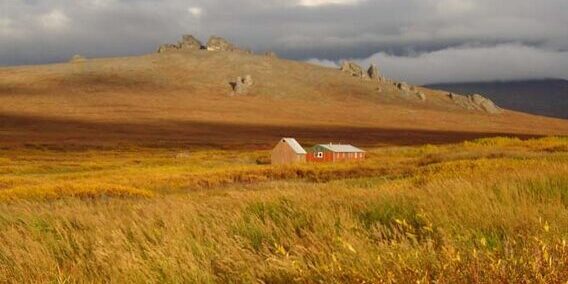A series of talking circles involving Alaska Native tribes, regional and village Tribal land managers, Native non-profit corporations, Elders and federal land managers are being held across the state over the next few weeks.
The Alaska Co-Stewardship Talking Circle is bringing together leaders from these groups to discuss improving the co-stewardship of public lands, waters and wildlife.
Shelly Wade is the coordinator of the events. She says one priority, above all others, will be considered by the partners involved.
“The highest priority is subsistence and consideration of subsistence resources,” Wade said. “So, there’s a lot of ‘whys’ of how these partners have shared ideas about how to better manage public lands to meet the needs of Alaska Native populations and their federal partners.”
Wade says, in the Bering Strait region, there are projects that are good examples of what a working partnership looks like. She says that the National Park Service has a multi-year funding agreement with Kawerak to preserve culturally relevant sites in Bering Land Bridge National Preserve.
“That’s really a multi-year funding agreement with Kawerak for capital projects,” Wade said. “Some examples are Serpentine Hot Springs maintenance upgrades, shelter cabin upgrades at Grayling Creek, and many others that are preserving and sharing cultural knowledge on the Bering Straits.”
The Nome talking circle was held on May 11. It will be followed by meetings in Juneau on May 18, Kotzebue on May 22, and virtually on June 8.
A talking circle scheduled for Utqiagvik was canceled due to whaling season being in full swing.
“This is the opportunity for tribal partners and federal partners to sit down together and have a dialogue about how to do the management of public lands and work together to meet common and shared vision and goals,” Wade said.
An October 2022 talking circle at the Alaska Federation of Natives convention identified that Indigenous knowledge exceeds the federal or state government’s awareness when it comes to the land, water, animals and the ecosystem.
The AFN talking circle also declared that Tribes need to be involved from the beginning of – or lead – any stewardship process, and not just be “consulted.”
According to the findings of the talking circle, Tribes and Indigenous communities have felt “ignored during and after previous land stewardship efforts initiated by the federal government.”
Image at top: The bunk house at Serpentine Hot Springs. KNOM file photo




